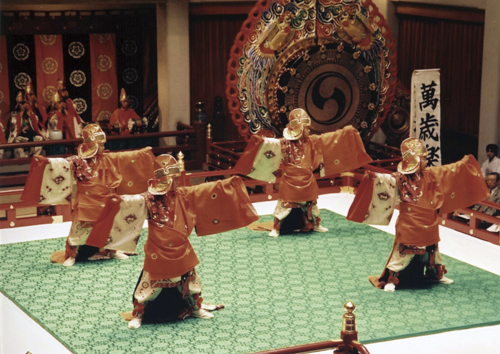Summary > CHAPTER 3 Japan�s Foreign Policy in Major Global Issues > 3. Efforts to Promote Understanding and Trust toward Japan
3.
|
Efforts to Promote Understanding and Trust toward Japan
|
In order to implement foreign policy effectively, in addition to making direct approaches towards policymakers abroad, it is important to promote interest in and form favourable impressions of Japan in the minds of the general public of other countries, who form the base of support for their governments� policies, by providing information and promoting exchanges. The impact of public opinion on foreign policy has been increasing particularly in recent years, in part due to the development of the information and the communication technologies and the establishment of democracy in many countries. Accordingly, the government of Japan works on public relations overseas to promote understanding Japan and her foreign policies among the citizens of foreign countries. The government also makes efforts to convey its multi-faceted appeals and promote cultural exchanges, with a view to enhancing others� images of and strengthening their sense of affinity towards Japan.
In this regard, the Ministry of Foreign Affairs implements measures to promote Japanese language overseas, introduce pop-culture and other Japanese contemporary culture, and communicate Japanese foreign policy towards intellectuals abroad. Besides Japanese language programs offered by the Japan Foundation, the government of Japan dispatched volunteers to four countries in Central and Eastern Europe (Hungary, Poland, Bulgaria and Romania) in January, who engages in Japanese language education and cultural activities at grassroots level under the Japan Culture Volunteers Program. Furthermore, the Ministry assigned young leaders in the field of fashion as the Trend Communicators of Japanese Pop-Culture (a.k.a. �Kawaii Ambassador�) in February and dispatched them to Japanese culture-related events in various countries. In November, the Japan Creative Centre (JCC) was inaugurated in Singapore as a communication hub of Japanese culture. In addition, the Ministry invites to Japan foreign opinion leaders and journalists who have significant influence on international public opinion, as well as individuals abroad who are expected to play leading roles in their respective fields in the future, to foster their better understanding towards Japan. The Ministry also supports the participation of Japanese experts in international conferences and symposia.
The Ministry of Foreign Affairs organizes �Exchange Year� programs to commemorate diplomatic anniversaries with other countries. In 2009, intensive exchange programs were organized with the Mekong region countries as well as with the four countries along the Danube (Austria, Hungary, Romania and Bulgaria), since 2009 was designated as the Mekong-Japan Exchange Year and as the Japan-Danube Friendship Year respectively. With regard to developing countries, Japan provides cultural grant assistance, while actively supporting the preservation and restoration of cultural heritages and capacity-building, as well as making intellectual contributions towards establishing frameworks for international cooperation and standard-setting in the field of culture, through cooperation with the United Nations Educational, Scientific and Cultural Organization (UNESCO), and other organizations.

Gagaku, one of the oldest performing arts in Japan, encompasses ancient Japanese music and dance such as Azumaasobi, instrumental music and ceremonial dance introduced from the Asian continent after 6th century, and vocal music composed in Heian-era (8-12th century) such as Saibara or Rouei. Gagaku continues to be transmitted mainly in the Imperial Palace.
|
Text File
PAGE TOP 

